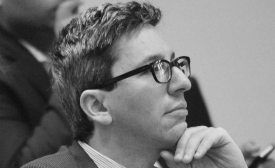soft power

Research on the intersections between PD and international development and post-doctoral work at University of Texas, Austin and Oxford.
Foreign policy experts are saying that the back-and-forth is demonstrative of how public health issues are building bridges between countries that have a history of being at odds with one another.
Harun Yahya in this opinion piece advocates that Turkey should always be on the side of diplomacy, soft-power, and effectively administer an intellectual struggle to defeat the opponents that resort to violence and persecution.
Russian propaganda, often masquerading as legitimate news, is disseminated through state-controlled media to confuse, obscure, and shift the debate about Putin and to legitimize Russian aggression abroad.
While introducing Chinese language and culture to foreigners is a good idea, the aggressive attempt to do so via Confucius Institutes has proved problematic.
However you define it, power is important because it allows you to get things done. Whether you are a politician or an executive, you must seek power to achieve objectives. Yet power never stays constant, but has always been highly dependent on context and, in today’s world of rapidly shifting contexts, emerging sources of power are often the most potent.
In Kinmen's farming villages, old cottages have been restored and turned into bed-and-breakfasts for visitors to experience traditional architecture and the rhythms of rural life. Crowds are sparse in the off-season, but tourism is the best hope to supplement agricultural incomes now that the soldiers are gone.
Torn between its commitment not to intervene in the affairs of other countries and the growing demands of the West to use its growing clout to share some of the burden of shaping the world order, all eyes have turned to China’s budding soft power.







